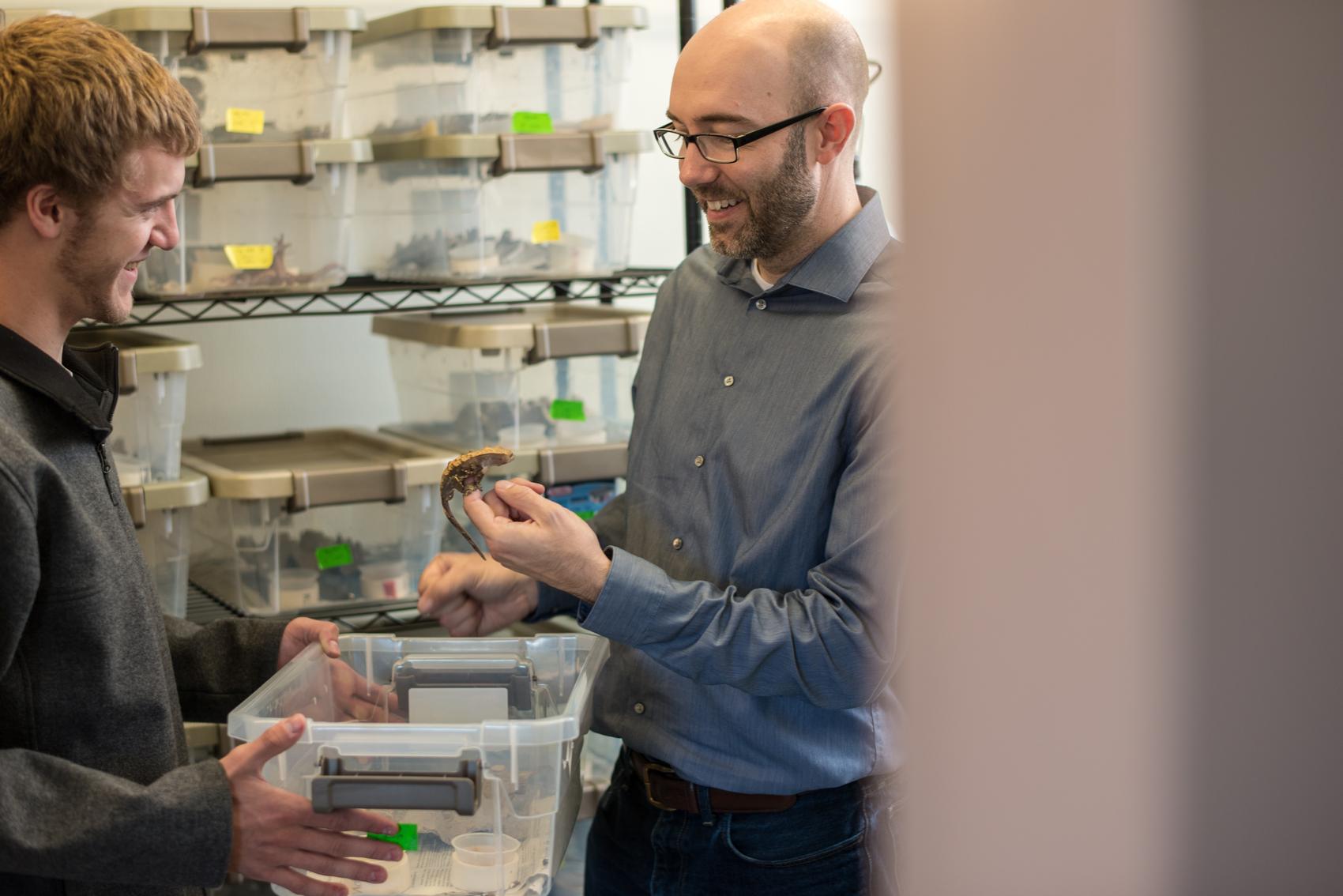Dr. Tony Gamble, associate professor of biological sciences in the Klingler College of Arts and Sciences, has received almost $1.1 million in R01 grant funding from the National Institutes of Health’s National Human Genome Institute to expand genome editing tools and processes in lizards which could facilitate comparisons of gene function among other species, including humans.
Gamble’s project will adapt and expand methods for editing genes, which were initially developed in anole lizards, for use in other lizard species with a focus on geckos. These developments will facilitate comparisons of gene function across reptiles and other amniotes, including humans. Research derived from this project will improve knowledge of vertebrate developmental pathways, enable production of new lizard models relevant for understanding human disease, and deepen understanding of the relationship between genotype and phenotype.
“Functional genomic tools are critical for investigating the biology of genes and have transformed our understanding of genotype-to-phenotype relationships, but the limited number of species with genome modification methods presents a major bottleneck in implementing comprehensive, comparative studies of gene function,” Gamble said. “For instance, lizards and snakes comprise 40% of all amniote species, include more than 11,000 described species and yet basic gene editing methods are only available in a single species, the brown anole lizard.”
This project will expand CRISPR/cas gene editing into a second lizard group, the geckos. Advanced gene editing methods will then be developed for the introduction of precise sequence substitutions, insertions and deletions in lizards—both anoles and geckos. Finally, lizard gene editing techniques will be disseminated to the scientific community through training materials and workshops and the production of genome-edited lizards for other researchers.
“We are thrilled and proud that Dr. Gamble has received this incredible honor and funding opportunity from the National Institutes of Health to expand his research in lizards in an area which could facilitate better understanding of human genetics,” said Dr. Heidi Bostic, dean of the Klingler College of Arts and Sciences. “This approach and grant demonstrate the innovation on display in the Gamble Lab, while developing more precise gene editing tools will have a significant influence on the research community and accelerate scientific progress.”
Gamble’s lab will partner with co-principal investigator Dr. Douglas Menke, adjunct associate professor of cellular biology at the University of Georgia.
The National Institutes of Health’s Research Project Grant (R01) is the original and historically oldest grant mechanism used by the NIH. The R01 provides support for health-related research and development based on the mission of the NIH. R01s can be investigator-initiated or can be solicited.
The National Human Genome Institute collaborates with the scientific and medical communities to enhance genomic technologies that accelerate breakthroughs and improve lives by driving cutting-edge research, developing new technologies, and studying the impact of genomics on society.



